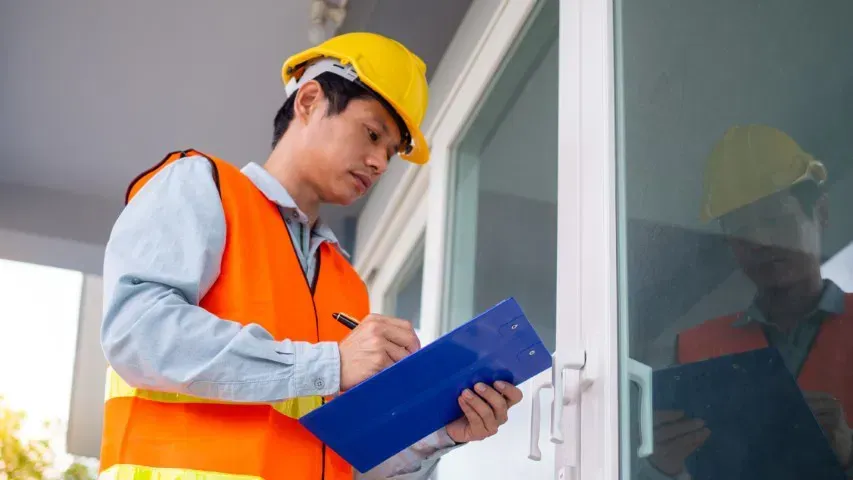What Do Appraisers Review?
Trust us to deliver precise and objective reviews for confident decision-making and compliance. Read on to get a better understanding of what we'll be looking at.
Schedule Your Home Appraisal Today
What Will Our New Haven Appraisers Review?
When it comes to buying or selling a home, one critical step in the process is getting a property appraisal. But what exactly do these professionals look for when they assess the value of a house? Let's look into the details to understand what influences a home's worth and why you might need a licensed appraiser.
Home appraisers focus on both external and internal factors to determine the actual value of a house. Their goal is to establish a fair market value that is not influenced by subjective opinions or emotional attachments. A price that is influenced by those factors is often referred to as a perceived value.
External Factors
- Neighborhood Characteristics - Appraisers start by evaluating the area surrounding the property. This includes the type of neighborhood—urban, suburban, or rural—and the percentage of different housing types present. For example, homes in New Haven might be appraised differently based on their location within the city.
- Lot Size and Zoning - The size of the lot and its zoning classification significantly impact the property's value. A larger lot or one that is zoned for multiple uses could be worth more.
- Utilities and Amenities - Connection to public utilities and the presence of amenities like a garage or a well-maintained driveway are also considered. The type of driveway surface and vehicle storage options can influence the appraisal.
Internal Factors
- Square Footage and Layout - The appraiser will measure the total living area, including the number of bedrooms and bathrooms. They will also check if there are additional spaces like a basement, attic, or crawl space.
- Condition and Upgrades - The condition of the home, including the foundation, structure, and the materials used for flooring, windows, and walls, is crucial. While updating a bathroom or kitchen can improve the perceived value, these upgrades do not always increase the actual value.
- Safety Features - For specific loans like FHA or VA, the appraiser must note safety features such as handrails on stairways and smoke detectors on all floors.
Request a Quote
We will get back to you as soon as possible.
Please try again later.
Perceived Value vs. Actual Value
Understanding the difference between perceived value and actual value is essential. Perceived value refers to how much a potential buyer might be willing to pay based on the home's aesthetics and features, while actual value is what a licensed appraiser determines based on objective criteria.
For instance, spending $30,000 on a new kitchen might increase the perceived value because it looks modern and appealing. However, it doesn’t necessarily increase the home's actual value. An appraiser will compare the home to similar properties (comps) in the area that may or may not have these upgrades. Therefore, adding a room or increasing the square footage of your home has a more direct impact on the actual value compared to aesthetic upgrades.
In regards to the perceived value, a new luxurious kitchen may catch the eye of a prospective buyer. It may also help your home stand apart from a similar property down the street with an older, more ordinary kitchen. This trait might help your home sell faster and even for more than the listing price, however that may not show up on your appraisal. The investment on a renovation like a new kitchen could have a great return if you find a buyer that values it but understand that it may not always change the appraisal price or actual value.

The Role of Comps
Comps, or comparable properties, are recently sold homes in the same area that are similar in size, condition, and features. Appraisers use these comps to help determine the value of a house. For example, if you're selling a home in New Haven, the appraiser will look at other similar homes sold in New Haven (often within a mile of the property) to establish a fair market value.
The Appraisal Process
Appraisers use different approaches to determine a property's value:
Sales Comparison Approach
This is the most common method, where the appraiser compares the property to recently sold homes in the area that are similar in terms of size, age, and condition.
Cost Approach
This method calculates how much it would cost to replace the property with a similar one, considering depreciation.
Income Approach
Used primarily for income-producing properties like apartment buildings, this approach considers the income generated by the property.

Communication with Your Home Appraiser
Effective communication with your home appraiser is crucial but must be handled appropriately. While you can provide additional property information and even comps to your appraiser, it's important not to try and influence their assessment. Regulations allow real estate agents and other interested parties to communicate with appraisers, but any attempt to bribe, intimidate, or influence them is strictly prohibited.
Appraisers also have a code of conduct they need to follow throughout the process. To understand some of these expectation and reasons behind them, check out our ethical appraisal page.
Property Appraisal Checklist
To prepare for a property appraisal, you can follow a simple checklist to ensure all relevant aspects are covered:
- Exterior Maintenance - Make sure the exterior of your home is well-maintained. This includes the lawn, driveway, and any exterior buildings.
- Interior Condition - Ensure that the interior of the home is clean and that all systems (plumbing, electrical, heating) are in working order.
- Upgrades and Renovations - Document any upgrades or renovations, especially those that increase the square footage or improve the structural integrity of the home.
- Safety Features - Check for necessary safety features such as smoke detectors and handrails on stairways. Make sure those railings aren't loose or wobbly while you're at it. Something this simple can give the impression that the house has not been well kept.
- Provide Comps - Gather information on comparable properties in your area to provide to the appraiser.
None of these items are required but they sure won't hurt when you're trying to obtain the highest value for your home.

Why Do You Need a Licensed Appraiser?
A licensed appraiser gives an unbiased assessment of your property's value, which is crucial for several reasons. For mortgage approval, lenders need an appraisal to ensure the loan amount matches the property's value. In estate planning, an appraiser helps determine the home's value for settlements. When selling or buying, knowing the true value of a house aids both buyers and sellers in making smart decisions. If you’re in any of these camps, call our office to have an Elm City property appraiser provide you a free quote.
Get a Fast Property Appraisal in New Haven
If you need a fast property appraisal call and check our current leads times. High request volumes ebb and flow and we may be able to expedite the process for you. This can be particularly useful in competitive markets where time is of the essence.
Understanding what home appraisers review and how they determine a home's worth can help you prepare for the appraisal process. Whether you're buying, selling, or refinancing, a thorough and unbiased property appraisal is crucial in making informed real estate decisions. If you're in Connecticut, CityWide Property Appraisals is the first step toward ensuring your home's actual value is accurately assessed.

